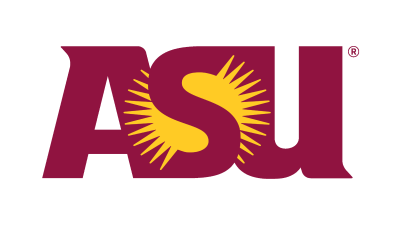

Arizona State University (Polytechnic Campus)
Technical Communication (Social Media Management), BS
Study detals
: Bachelor's degree : Technical Communication (Social Media Management), BS LSTECSMMBS : Full time : 48 MonthRequirements
Academic requirements
First-year students must:
- Have a 3.00 grade point average (GPA) (a "B" or better where "A"=4.00) from a secondary school. Some ASU programs may have higher admission or English proficiency requirements and may consider a minimum ACT or SAT score.
- Must have three years of high school coursework. (If you are currently in high school, ASU needs to see 9–11 grade coursework. If you have completed high school, ASU needs to see 10–12 grade coursework.)
- Must have and present a completed high school diploma or certificate.
Conditional admission
ASU may offer conditional undergraduate admission to international applicants to an on-campus program who meet the academic (aptitude) requirements but who are not proficient in English. This offer of conditional admission will give you time to improve your English proficiency before you start classes at ASU. Your conditional admission offer is good for up to three semesters, during which time you must meet one of these requirements to begin your ASU experience.
Competency requirements
International students who completed high school outside the U.S. are required to meet the following competency requirements:
- Math: four years (algebra I, geometry, algebra II and one course requiring algebra II as a prerequisite).
- Laboratory science: three years total (one year each from any of the following areas are accepted: biology, chemistry, earth science, integrated sciences and physics).
Provide evidence of English language proficiency (TOEFL 61)
Speciality
Also available online
Additional information
Program description
Technical communication entails communicating with, about and on technology. Social media is a rapidly developing aspect of the technology landscape. This social media management concentration in the BA program in technical communication focuses on the management, history, theory, culture, practice and ethics of social media.
While the technical communication major gives students a wide look at how professional technical communicators do many types of work inside and outside organizations, this concentration hones in on social media creation as a specific type of technical communication work. Students learn the practical aspects of social media creation alongside the history, legal concepts, ethical ideas and current concerns that shape and inform that practice. Students also learn about existing and emerging social media in ways that allow them to adapt and thrive in the constantly changing social media environment.
Concurrent program options
Students pursuing concurrent degrees (also known as a “double major”) earn two distinct degrees and receive two diplomas. Working with their academic advisors, students can create their own concurrent degree combination. Some combinations are not possible due to high levels of overlap in curriculum.
Global opportunities
Global experience
Those who study abroad while learning technical communication will have an advantage in many workplaces. Understanding the global view of applied workplace communication, students become well-rounded communicators, able to use various print and digital information products to relate technical and specialized information. Students may participate in one of the more than 300 available Global Education programs, expanding their scope of learning beyond the classroom and gaining hands-on experience in different and exciting cultures.
Many of the School of Applied Professional Studies programs allow students to earn credit toward their major for their experiences studying abroad.
The Bureau of Labor Statistics estimates that job growth in technical communication and related areas will continue to be significantly higher than average during the next five years. Software and electronics companies, media corporations, financial institutions, government agencies, nonprofits and other areas will see an increased demand for technical communicators.
Graduates of the program are prepared for careers such as:
- communication manager
- content strategist
- data visualization specialist
- public relations specialist
- social media manager
- social media specialist
- technical writer
- user experience specialist
- web content creator